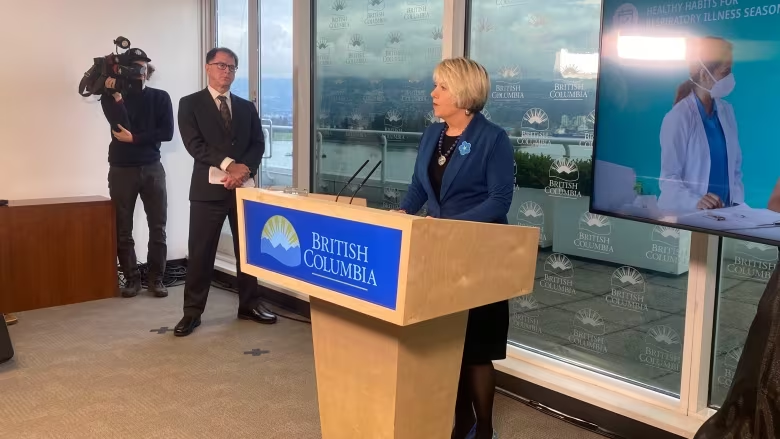
B.C. Provincial Health Officer Dr. Bonnie Henry said Influenza A is the most prominent respiratory virus in circulation at this time. (Janella Hamilton/CBC)
In British Columbia (B.C.), health authorities report an increase in influenza and respiratory syncytial virus (RSV) cases while observing a decline in COVID-19 rates.
Provincial Health Officer Dr. Bonnie Henry addressed the rise in respiratory illnesses during her initial public briefing of the year, noting the typical post-holiday surge in such viruses. Dr. Henry anticipates a peak in influenza and RSV in the upcoming weeks.
Simultaneously, hospitals in the province are experiencing a record influx of patients, with Health Minister Adrian Dix confirming 10,435 hospitalizations as of Tuesday night. He acknowledged the challenge for the healthcare system but asserted its capability to handle the surge. Dix attributed the heightened hospitalizations, in part, to the resumption of full-slate surgeries post-COVID-19.
While respiratory illnesses are not as prevalent as in regions with lower immunization rates, Dr. Henry emphasized the importance of vaccinations and healthy practices to mitigate the impact on individuals and the healthcare system. Recently, three children under 10, who were unvaccinated against influenza, died with the flu as a contributing factor. Dr. Henry stressed the preventability of such tragedies through vaccination.
Minister Dix assured that B.C. hospitals have the capacity to manage a surge in the coming weeks. Despite the challenging situation, he highlighted the high vaccination rates in B.C., noting that the province leads North America in flu and COVID-19 vaccinations. As of January 9, 1.519 million flu vaccine doses and 1.39 million COVID-19 booster doses have been administered during the current flu season.
Dr. Henry shared survey results indicating that 83% of Lower Mainland residents possess some level of immunity against COVID-19, either through vaccination or infection. This represents a 10% increase from the previous year. She underscored the positive impact of hybrid immunity—acquired through both vaccination and prior infection—on health outcomes, leading to more robust and enduring protection against severe COVID-19 outcomes. The lower hospitalization rates affirm the efficacy of hybrid immunity in B.C.















